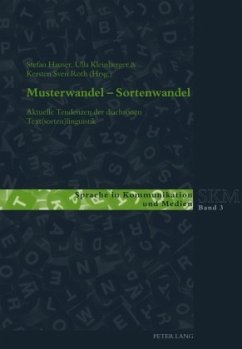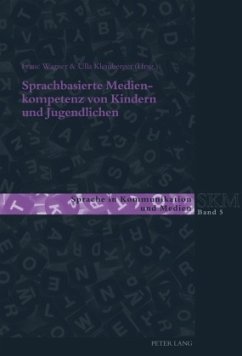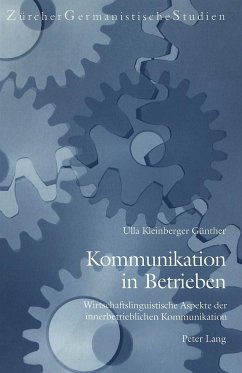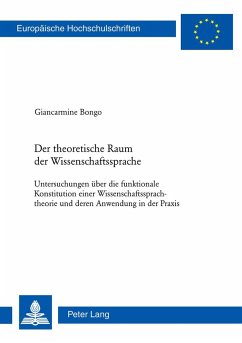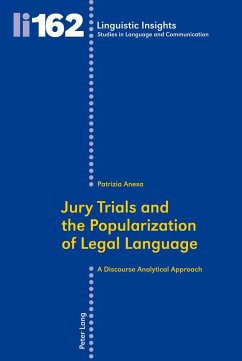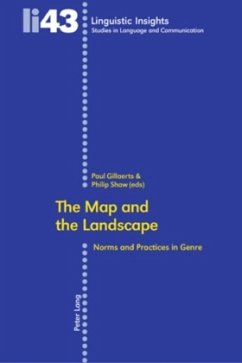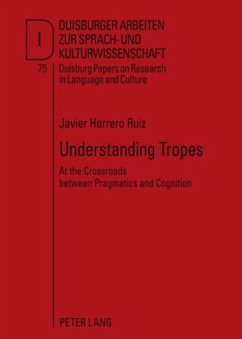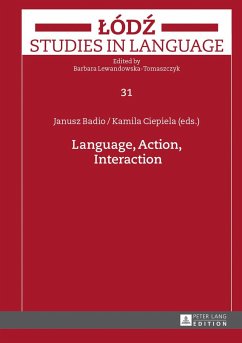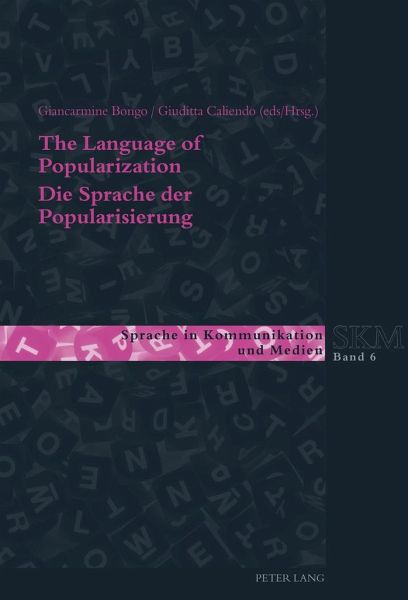
The Language of Popularization- Die Sprache der Popularisierung
Theoretical and Descriptive Models- Theoretische und deskriptive Modelle
Herausgegeben: Bongo, Giancarmine; Caliendo, Giuditta
Versandkostenfrei!
Versandfertig in 6-10 Tagen
94,05 €
inkl. MwSt.

PAYBACK Punkte
0 °P sammeln!
In today's knowledge-based society, exploring the dynamics of communicating specialised contents to the lay public is an undoubtedly topical issue. However, popularization still remains a rather unexplored territory and recent contributions to the field seem to lack a consistent methodological orientation, with hesitations in terms of shared and codified definitions. The contributions to this volume constitute a step forward in the field of popularization studies. New scenarios have been explored with a view to providing shared theoretical and descriptive models from a linguistic perspective a...
In today's knowledge-based society, exploring the dynamics of communicating specialised contents to the lay public is an undoubtedly topical issue. However, popularization still remains a rather unexplored territory and recent contributions to the field seem to lack a consistent methodological orientation, with hesitations in terms of shared and codified definitions. The contributions to this volume constitute a step forward in the field of popularization studies. New scenarios have been explored with a view to providing shared theoretical and descriptive models from a linguistic perspective and investigating the way popularization is characterised and instantiated, also taking into account its intercultural dimension. The research methods and tools draw upon the analytical framework of discourse analysis, pragmatics, corpus linguistics and genre analysis.
In der heutigen Wissensgesellschaft sind die Mechanismen des Transfers von Fachwissen an Laien von großer Relevanz. Dennoch bleibt Popularisierung ein linguistisch noch relativ unbestimmtes und unerforschtes Phänomen. Ziel des Bandes ist deshalb, neue Perspektiven zu eröffnen und auf mögliche neue konsistente Modelle (sowohl theoretische als auch methodologische) hinzuweisen. Unterschiedliche Ansätze kommen dabei ins Spiel, u.a. Diskursanalyse, Rhetorik, Pragmatik, Korpuslinguistik und genre analysis.
In der heutigen Wissensgesellschaft sind die Mechanismen des Transfers von Fachwissen an Laien von großer Relevanz. Dennoch bleibt Popularisierung ein linguistisch noch relativ unbestimmtes und unerforschtes Phänomen. Ziel des Bandes ist deshalb, neue Perspektiven zu eröffnen und auf mögliche neue konsistente Modelle (sowohl theoretische als auch methodologische) hinzuweisen. Unterschiedliche Ansätze kommen dabei ins Spiel, u.a. Diskursanalyse, Rhetorik, Pragmatik, Korpuslinguistik und genre analysis.





